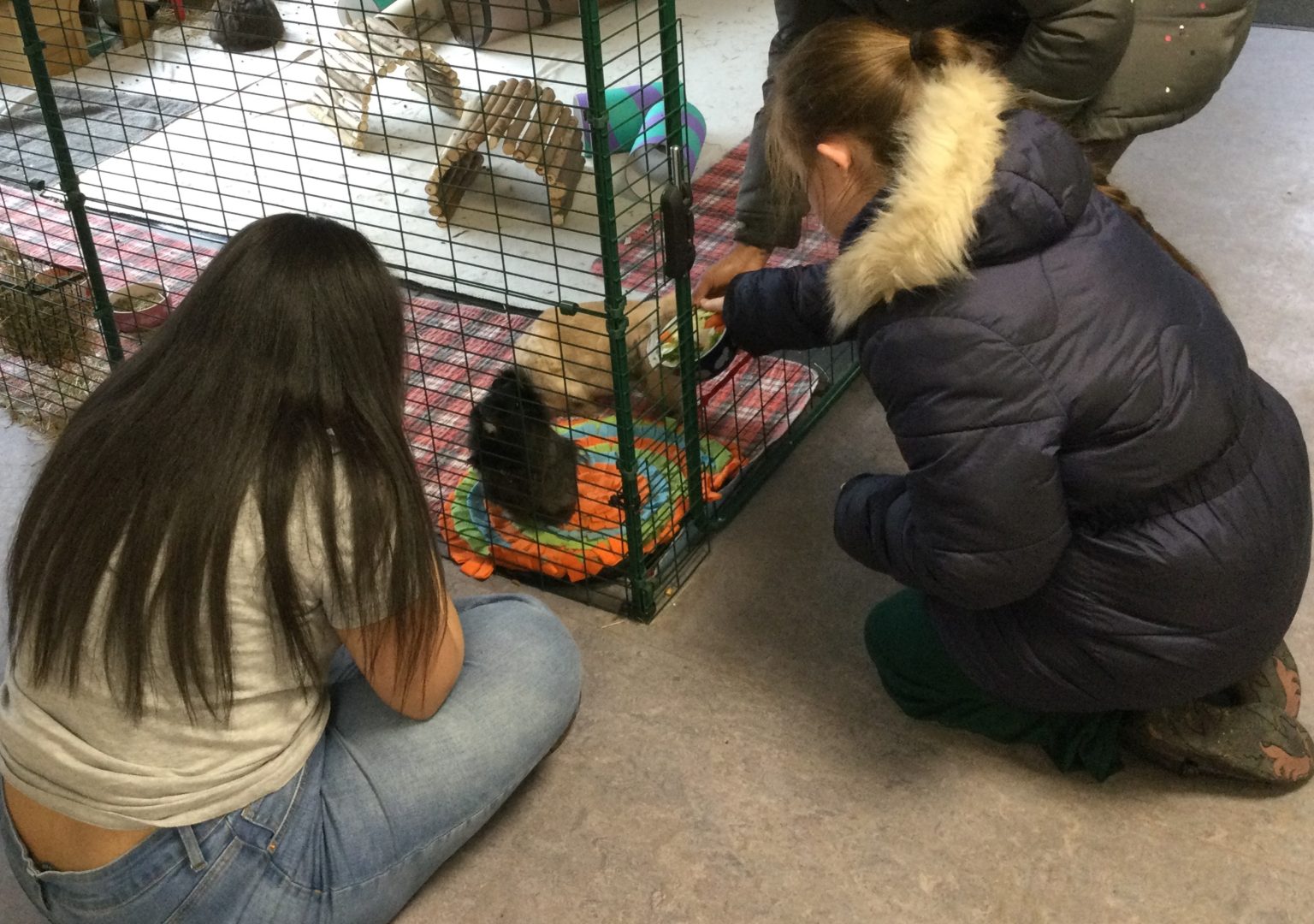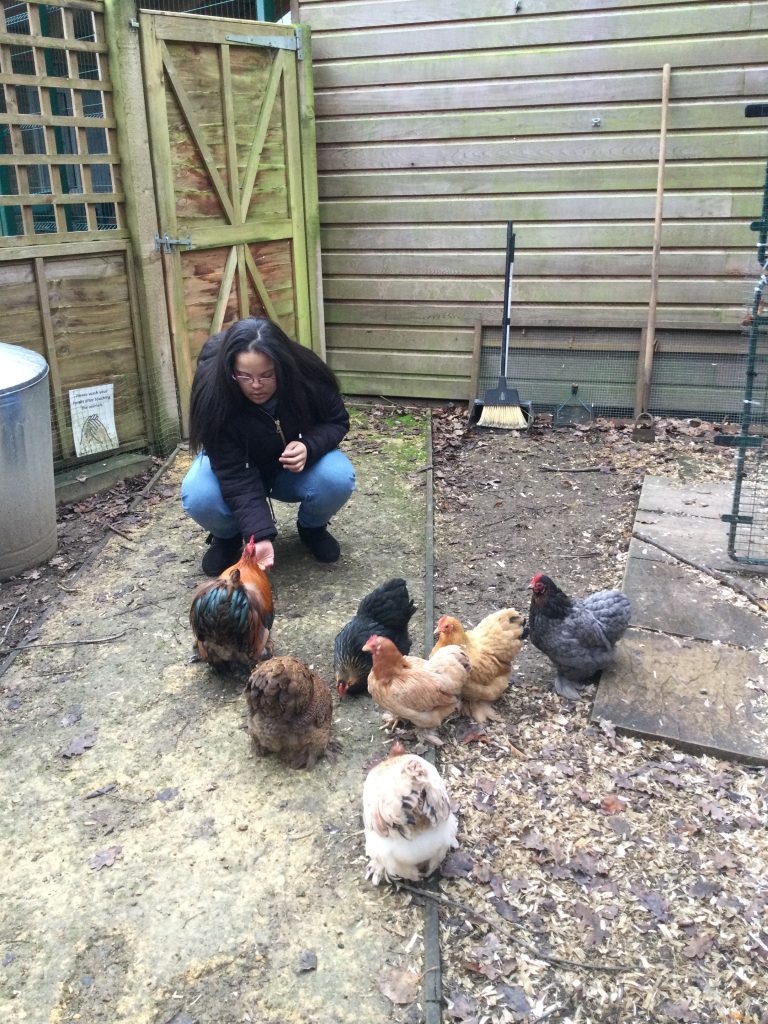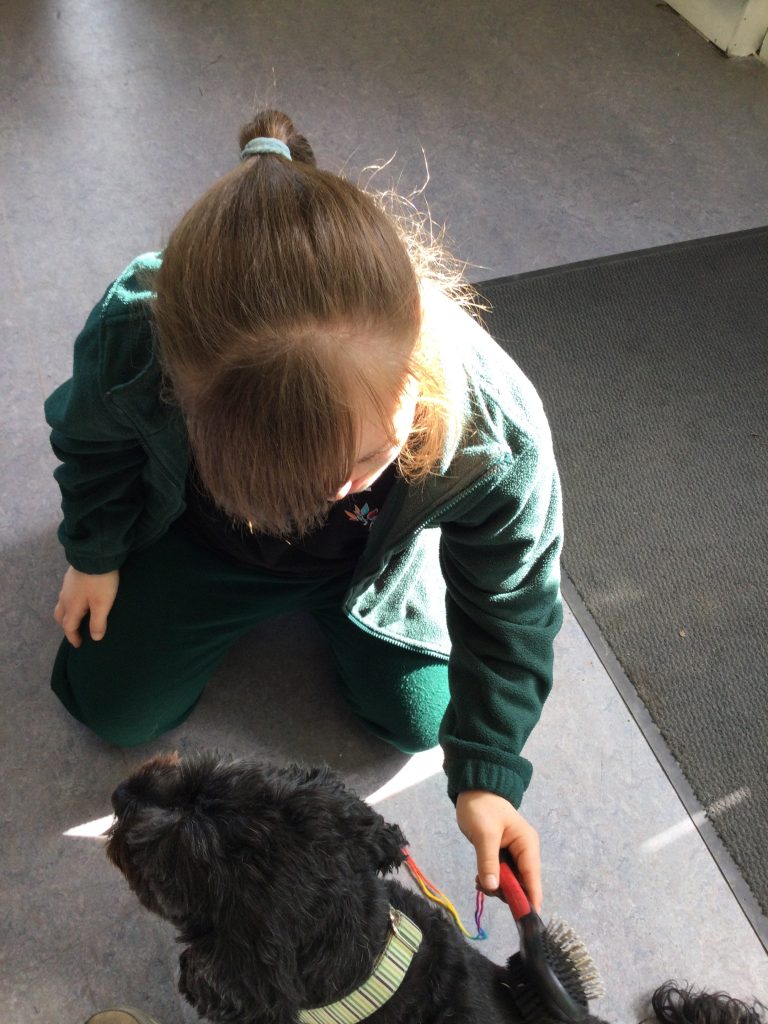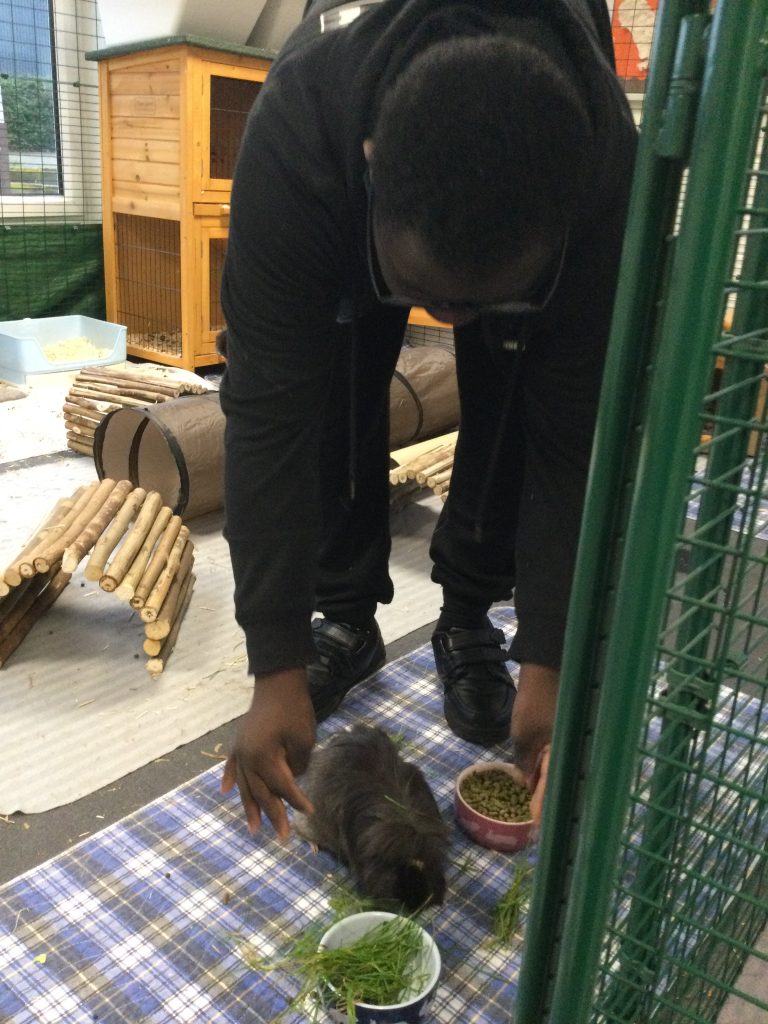At Priory School, a special educational needs setting for students aged 11-19 with moderate to severe learning difficulties and an autism focus, the school grounds are home to a delightful menagerie that brings joy, learning opportunities, and therapeutic benefits to the students.
The animal family at Priory includes eight characterfully named Pekin Bantam chickens: Storm, Sunshine, Thunder, Lightning, Lucky, Sherbet, Africa, and Boris. These small, calm birds are perfect for the school environment, with most hatched on-site (except for Sherbet, who was adopted after losing her companions to a fox).
The school also cares for Forest the rabbit (who recently lost his partner Autumn), three guinea pigs named Elvis, Teddy, and Orio, and Millie the dog, who belongs to the headteacher and visits several days each week.
The animal care program began in 2018 when a staff member with a zoology degree and experience working with school groups at Vauxhall City Farm joined Priory. Living just around the corner from the school makes managing the animals’ care more practical.
“The project was set up to add another learning opportunity for students and something a bit different that may appeal to students who struggle to engage in lessons,” explains the program coordinator. Since then, the initiative has blossomed into offering valuable work experience opportunities.

For students with learning difficulties and autism, the animals provide a unique bridge to learning and social development. The benefits are numerous:
“Many students who may struggle with human interactions can enjoy the simpler interactions with the animals,” shares Tony- the School Business Manager. One student comes weekly to feed the guinea pigs and talk to them, building confidence through these gentle exchanges.
The animals also support academic skills in creative ways. A student practiced reading skills by reading aloud to Millie the dog, while another gained exercise and social practice by walking Millie in the local park and interacting with community members.

Most students get weekly opportunities to meet the animals during outdoor lessons. Those showing particular interest can visit more frequently, and post-16 students can choose animal care for work experience.
The most popular activities? Feeding dandelions to the guinea pigs, giving corn to the chickens, collecting and counting eggs, and walking Millie the dog.
Running a successful school animal program isn’t all cuddles and fun. “The main factor in being able to run the project is understanding that it is someone’s responsibility to look after the animals over the weekend and holidays,” the coordinator emphasises. “It is crucial that someone comes in at least once a day.”
Risk assessments, veterinary care, and ensuring safe student-animal interactions are all essential responsibilities.
Looking ahead, Priory plans to focus on guinea pigs and chickens. “We have found the guinea pigs are friendlier than the rabbits and better suited to school life. The chickens are great for learning opportunities and give eggs for cooking lessons,” says the coordinator.
Despite suggestions, they’re resisting adding goats, which would require Defra registration, dedicated grazing space, and significantly more care time.
For other SEN settings considering similar programs, Priory’s coordinator offers practical wisdom:
“Be very careful that you can ensure the welfare of the animals, especially over weekends and holidays. Start small and build up over time when things seem to work.”
And perhaps most importantly: “Don’t let anyone persuade you that your school needs loads of animals that are hard to look after – especially if you are the one who is going to look after them!”



